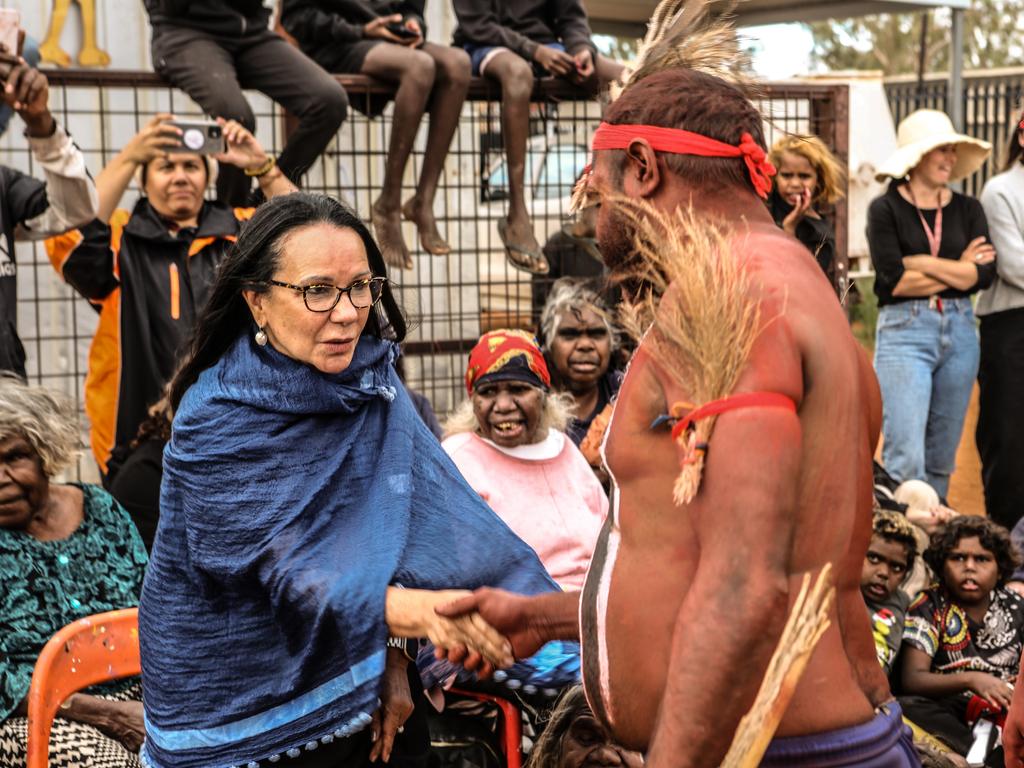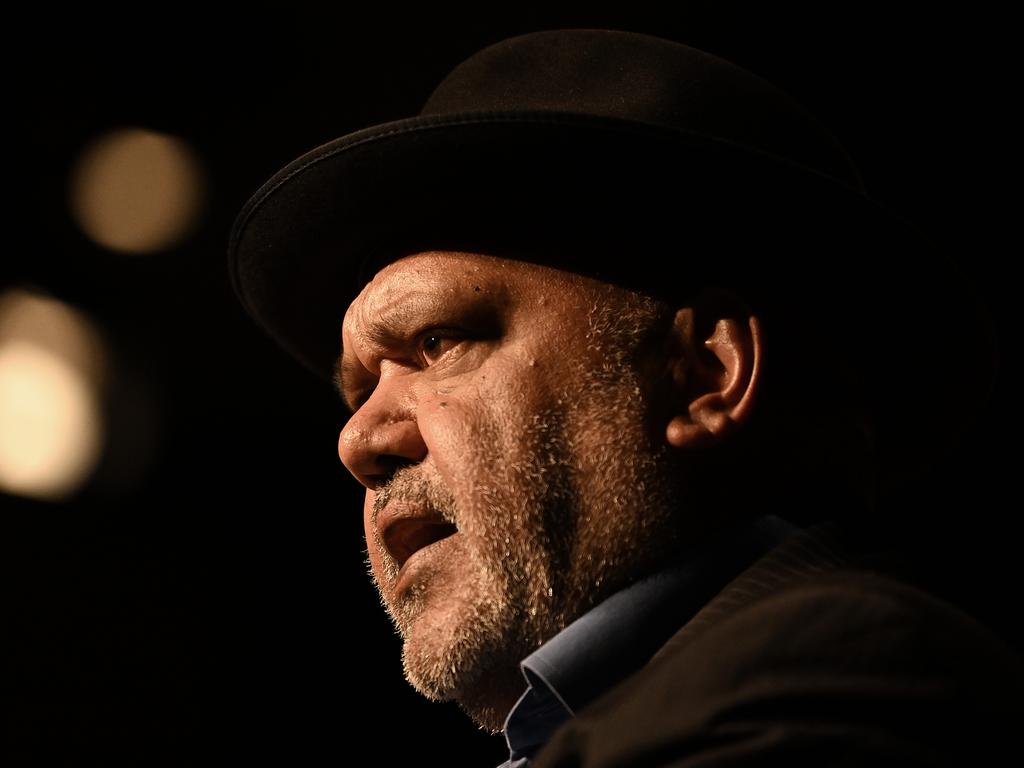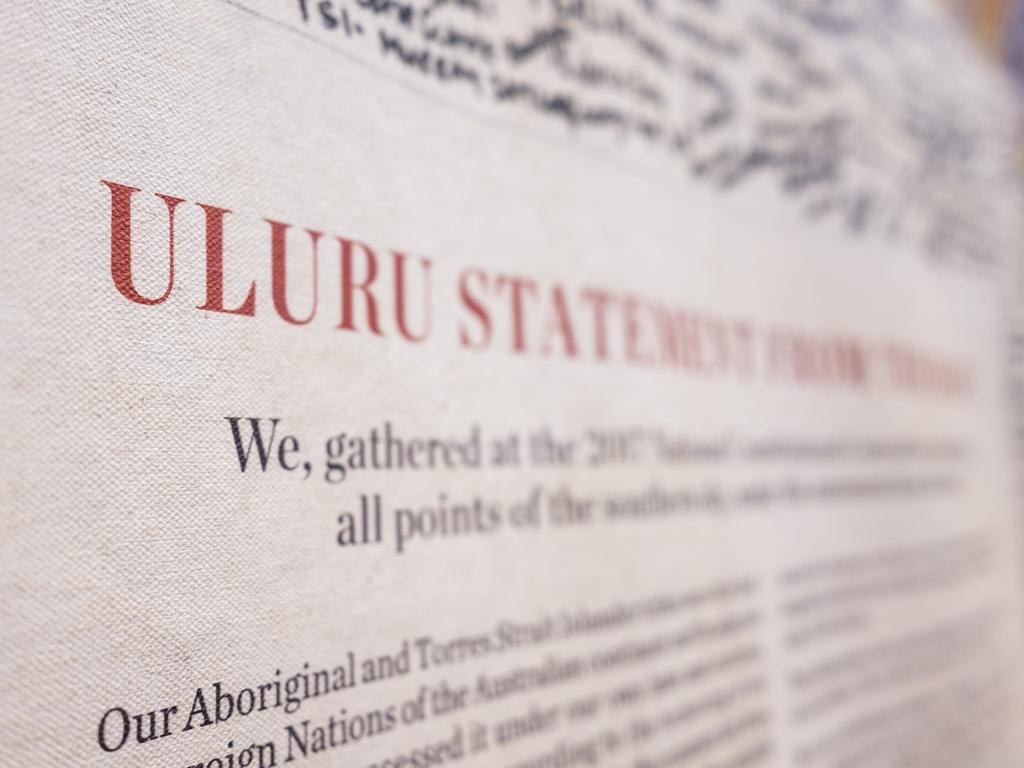Nastiness must stop in our debate over the voice

Our leaders seem to have forgotten that most of their predecessors committed themselves to bipartisan co-operation on this issue for nine years between 2010 and 2018. Back in 2010, Julia Gillard led a re-elected Labor team, but she needed to cut deals with the Greens and independents. Each of those deals included a commitment to a referendum on constitutional recognition of Aboriginal and Torres Strait Islander Australians.
Gillard set up an expert panel on recognising Aboriginal and Torres Strait Islander peoples in the Constitution that included “members of parliament from across the political spectrum”. The terms of reference stated that the process required “collaboration with parliamentarians from across the political spectrum”.
In 2013, Gillard worked closely with Tony Abbott as leader of the opposition for the unanimous passage through parliament of the Aboriginal and Torres Strait Islander Recognition Act.
When Abbott led the Coalition to victory, he committed himself to close co-operation with Bill Shorten, leader of the opposition, every inch of the way on this question. Malcolm Turnbull then did the same with Shorten. They agreed on membership and process for the Referendum Council, which finally reported in 2017. There was then a parliamentary committee set up to pursue the recommendations of the Referendum Council. The committee was co-chaired by Julian Leeser from the Liberal Party and the highly respected father of reconciliation, Patrick Dodson, from the Labor Party. The terms of reference for the joint committee required they “recommend options for constitutional change and any potential complementary legislative measures which meet the expectations of Aboriginal and Torres Strait Islander peoples and which will secure cross-party parliamentary support and the support of the Australian people”.
Dodson and Leeser wrote: “Beyond the poetry of the Statement from the Heart is the prose of political reality – the need to ensure our recommendations provide for a form of constitutional recognition that is legitimate and acceptable to Aboriginal and Torres Strait Islander people as well as our parliamentary colleagues across the spectrum, and ultimately to the Australian people.”
They went on to say: “Leaving aside any questions of the need to build further political consensus, it is difficult to proceed to referendum today on the voice when this committee has received no fewer than 18 different versions of constitutional amendments that might be put at a referendum.”
Dodson is now the Albanese government’s Special Envoy for Reconciliation and the Implementation of the Uluru Statement from the Heart. Leeser is the shadow minister. The committee included as members Linda Burney and NT senator Malarndirri McCarthy, who are now the Minister and Assistant Minister for Indigenous Australians.
Back in 2018 they all put their name to a report emphasising “the importance of cross-party support to achieve constitutional change”. They noted: “The fact that there are so many different provisions proposing to constitutionalise the voice and that a new provision was suggested in a late submission received by the committee on November 3, 2018, nearly two months after submissions had closed, indicates that neither the principle nor the specific wording of provisions to be included in the Constitution are settled. More work needs to be undertaken to build consensus on the principles, purpose and the text of any constitutional amendments.” That’s been the last bipartisan utterance we’ve heard from our elected leaders.
These past four years, both sides of politics seem to have given up on bipartisan co-operation and due parliamentary process. There has been no further parliamentary co-operation “to build consensus on the principles, purpose and the text of any constitutional amendments”.
Labor won the May election with a strong commitment to the Uluru Statement, knowing all three previous Liberal PMs had rejected the idea of a voice being placed in the Constitution. At the Garma Festival in July, the Prime Minister unilaterally announced his intention to adopt the provision put forward in the late submission to the 2018 committee, proposing those words for insertion in the Constitution with a little non-transparent tweaking.
For his part, Opposition Leader Peter Dutton has sat back simply asking for more detail. Neither Albanese nor Dutton has reached across the aisle for the good of the country, which has now spent 15 years committed to constitutional recognition but with no agreement on the principles, purpose and text of any amendment.
Over the summer, we all need to urge politicians on both sides of the aisle to return to a bipartisan approach and a transparent parliamentary process for determining the proposed wording to be placed in the Constitution. The first step will be for the government to subject Albanese’s Garma set of words to a rigorous parliamentary committee process so everyone can have their say.
If the proposal to be put to the people is to differ substantially from that recommended by the Referendum Council in 2017, it should be the result of a bipartisan parliamentary process. It’s time for Messrs Albanese and Dutton to show goodwill across the aisle on this issue as did their predecessors.
This might help avoid the repetition of the very unseemly, unhelpful remarks we’ve heard recently from experienced people who know hateful ad hominem remarks are not the building blocks of constitutional change. To amend the Australian Constitution, everyone needs to be assured that their voices have been respectfully heard.
This is an edited extract from a homily delivered by Father Frank Brennan in Rome on Sunday. Brennan was a member of the Langton-Calma Committee on the Co-Design of the Voice.







The recent public debate about Indigenous recognition in our Constitution has gone pear-shaped, and with a mark of nastiness that is not only unbecoming but also unhelpful. We need to redouble our efforts to have our politicians return to a bipartisan approach, following the appropriate steps for a successful referendum. We need a return to parliamentary procedure and civil public discourse so we might accord just constitutional recognition to Indigenous Australians.